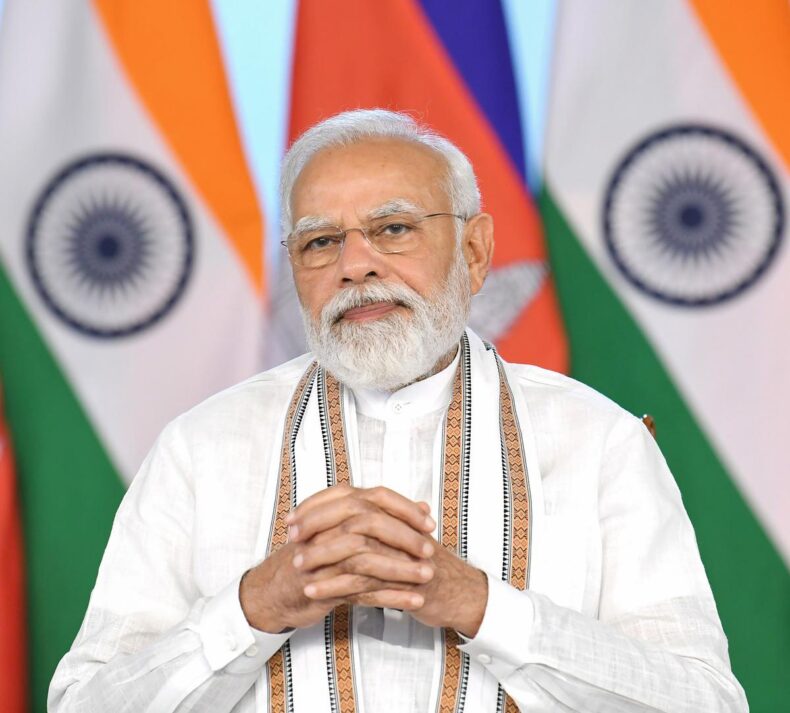PM Modi will be heading to Tokyo where he will have bilateral discussions with the Japanese Prime minister, Fumio Kishida; Australian PM, Scott Morrison and US president Joe Biden. The summit will be held in the Japanese city Tokyo on 24 May.
PM Modi is scheduled to meet Japanese business leaders and Indian people residing in Japan. It goes on to prove that Mr. Modi has really learned the art of commoditising the Indian influence abroad.

The MEA spokesperson added that, “We attach a lot of importance to the Quad. We have been keen to share what the quad can do together and what it stands for. We will discuss contemporary issues and other issues of importance.”
The last Quad summit happened in the virtual form in March this year in the background of the Russian invasion of Ukraine. At that time PM Modi, signaling to the world, pointed out that the core objectives of the Quad are peace, stability and prosperity in the region.
This is going to be the second summit in person and the fourth summit in total. “The forthcoming Quad, Summit provides an opportunity for the leaders to exchange views about developments in the Indian pacific region and contemporary global issues of interest,” said the MEA spokesperson.
India Australia Partnership:
Australian prime minister’s visit is not confirmed yet as he faces an election at home. This April India and Australia signed Economic cooperation and trade Agreement. If PM Scott Morrison gets to visit, it would be a wonderful opportunity to build onto earlier meeting.
Chinese adventure in Ladakh:
There have been reports that China was building a second bridge across the Pangong Tso. Traditionally this area has been under China for a long time.
India and China have had multiple rounds of talks without any substantial results. The foreign minister has signaled those normal ties won’t be restored until there is change on the stand on the Chinese occupying Indian land. Inherently the group was conceived to put pressure on China and contain its major misadventures.
What is Quad?
The idea of a four countries group was given by the former prime minister of Japan Shinzo Abe in 2007. At that time India declined the offer because Indian officials didn’t want to upset China.
But when China came to our doors in Ladakh and clashed with Indian soldiers in 2020, puzzled Indian leadership chose to join the Quad.
Quad is often called ‘Asian Nato’ which is apprehensive for India. India does not want to entangle between power politics of two blocks. There have been efforts to send a message to the world that it is a grouping about cooperation and prosperity.
In the last few years, the term ‘Asia Pacific’ has changed into ‘Indo Pacific’ which has been purely intentional. Covertly Quad is a grouping to confront China. It is crucial for all these four countries that China doesn’t dominate the Indo pacific.
Quad and its future:
Since the inception of the Quad, it has picked up the pace. In less than two years the leaders of four countries are meeting for the fourth time. It has provided a platform to these countries in engaging with each other.
India, Japan, Australia and the USA, four are flourishing democracy, facing an imminent threat from China which has become an expansionist power, flaunting its capabilities and subduing neighbors in Indo pacific. So far India has not taken a confrontational stance vis-a-vis China and Quad. Quad will be proven an important grouping as we descend into the future and China attains greater power, the confrontation is inevitable.
Quad and Cooperation:
Besides being a psychological block on the Chinese expansionist ambitions Quad has achieved significant cooperation. For instance, the vaccine initiative is impressive, but complications have led to delays in the production of vaccines.
New Delhi’s statement reads that critical and emerging technology, connectivity and infrastructure, cyber security, maritime security, humanitarian assistance, climate change and education are the key points to be discussed at the summit. It signals that except the security concern, Quad has proved beneficial when it comes to cooperation in technology, vaccines, knowledge and trade etc.
Read More : PM Modi’s Visit to Nepal to Boost Cultural Ties













